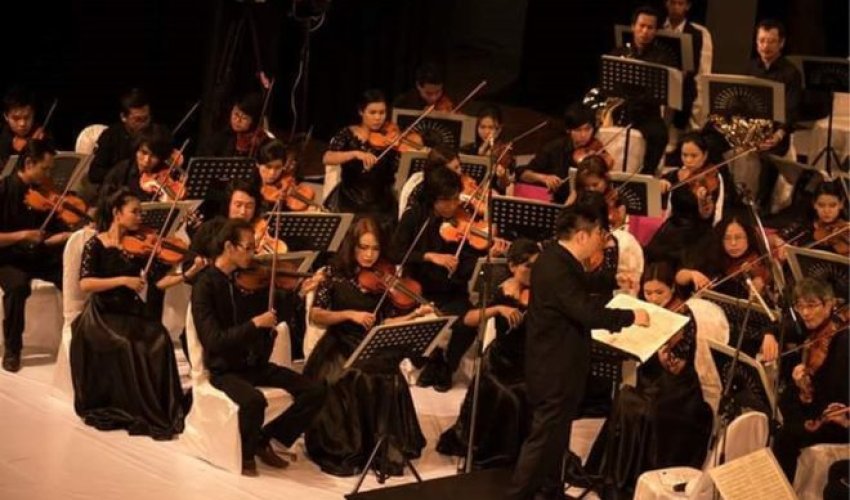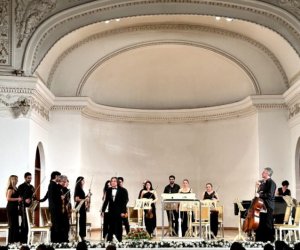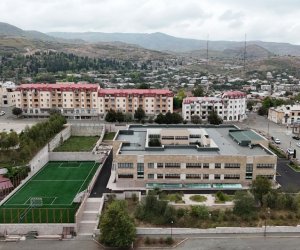Beethoven, Bach and Bond to win over Myanmar's generals

Aye Thida Tun, 43, a violinist for Myanmar's National Symphony Orchestra practices for four hours every single day.
"I feel guilty if I don't," she said.
But in her 12 years with the orchestra, Myanmar's former repressive military government only permitted a total of nine public performances.
"We are musicians, we are born to perform," said Aye, who is also deputy director of the orchestra. "It's been very difficult."
Working together
In a vast, dimly lit recording space of Studio B in the bowels of the state-run Myanmar Radio and Television building, Aye conducts her colleagues - violinists, cellists and viola players, young men and women drawn from Myanmar's numerous, sometimes-warring, ethnic groups.
As members of the National Orchestra they are state employees.
Dressed in traditional longyi, or sarongs, their silken hair pulled into braids or piled up in buns, the musicians are seated on plastic stools, barefoot. Neat rows of rubber sandals and leather flats are lined up in the foyer outside.
The women wear yellow patches of sandalwood paste on their cheeks.
With Myanmar's citizens marking the first 100 days of their first democratically elected president in 50 years, these musicians, once banned from free expression, are finally being heard.
They squeak and creak their way through Beethoven's Symphony No 3 - ever so slightly out of tune. But while you might question their musical skill, there's little doubt of their commitment or enthusiasm.
"Having a national orchestra is so important," said Aye. "It teaches us how to work together and it makes me so proud that my country has one."
Music has played a diplomatic role in many conflicts. In 1987, American jazz legend Dave Brubeck toured the Soviet Union. Daniel Barenboim's West Eastern Divan Orchestra brought Israeli, Palestinian and other Arab musicians together under the same baton.
In Myanmar, it is internal divisions that pose the gravest threat.
The orchestra - a mix of the majority Burman Buddhists, ethnic Shan people and Christians from Chin and Karen states - provides a rare opportunity for them to collaborate, even as an uneasy peace reigns nationally.
Naw Ei Ngone Phoo, 23, squints with concentration as she plays the notes before her.
An ethnic Karen violinist from Yangon, her home state in the east has raged with a bloody insurgency since Myanmar gained independence from the British in 1948. She is one of many musicians benefitting from the ethnic and social harmony here.
"I remember before the reforms, people had to seek the government's permission even to travel to relatives' houses," she recalls.
"But in January, I performed with the orchestra in my first public concert. I had never even travelled outside Yangon before. My heart was thundering with fear, but it was wonderful."
Cellist Sai Paing Htet Lin, 23, is partly ethnic Chin - a mountain tribe from northwest Myanmar, whose elders, as recently as the 1890s, kept the heads of their enemies as trophies and regularly abducted children from the plains to use as slaves.
American Baptist missionaries converted many Chin to Christianity with translated Bibles and free schooling in the 1900s.
Sai, who grew up in Yangon, is far removed from his colourful maternal history, but the participation of so many ethnic minorities in the orchestra reflects the painstaking task of reconciling Myanmar's tribes to one nation.
"When I make a mistake, it's not just my mistake," Sai said, "it affects the entire orchestra, so we really have to work hard and practice together to sound good."
Two concerts in 12 years
The orchestra was founded in 2000 by Khin Nyunt, a former military intelligence officer who served as prime minister under Than Shwe, the general who ruled the country with an iron fist until 2010.
"When I graduated from university with a music degree in 1997, Gen Khin Nyunt attended our valedictory concert," Aye recalls. "He later approached the rector and that's how the orchestra was born."
While Khin Nyunt remained powerful, the orchestra was allowed to exist, although it was only permitted two public concerts in its first twelve years of existence.
In 2004, Khin Nyunt was placed under house arrest for contacting contacting pro-democracy activist and Nobel Peace Prize winner Aung San Suu Kyi.
His fall from grace plunged the orchestra into silence. At one point, Myanmar's military government denied the orchestra even existed.
But that never stopped Aye, willowy with an infectious smile, from practicing alone every day for eight long years.
"I taught music and I tried not to get depressed."
Occasionally she and other musicians tried to organise a small private concert, only to have police clamp down a day before they were due to perform.
Myanmar's generals did eventually decide to open up the country to the outside world in 2010. The ban on the orchestra was lifted in 2012, leading to five public performances including one at the Angkor Wat temple complex in Cambodia.
And in January they performed to an audience of its once-repressive military masters.
At a concert in the capital, Nay Pyi Taw, they played Beethoven, Bizet and French composer Camille Saint-Saens under the direction of visiting Japanese conductor Yunosuke Yamamoto. In the audience sat the generals who had relinquished their military uniforms, in keeping with democratic reforms.
However, all was not "allegro".
"Burmese people are not that used to Western classical music," explained Aye.
"We were on stage sweating because we were working so hard, but to them it sounded very boring.
"So in the second half, we played tunes from Mission Impossible, The Godfather and James Bond. They enjoyed that very much."
(BBC)
www.ann.az
Similar news
Similar news




































 Photo
Photo 



 Video
Video 

